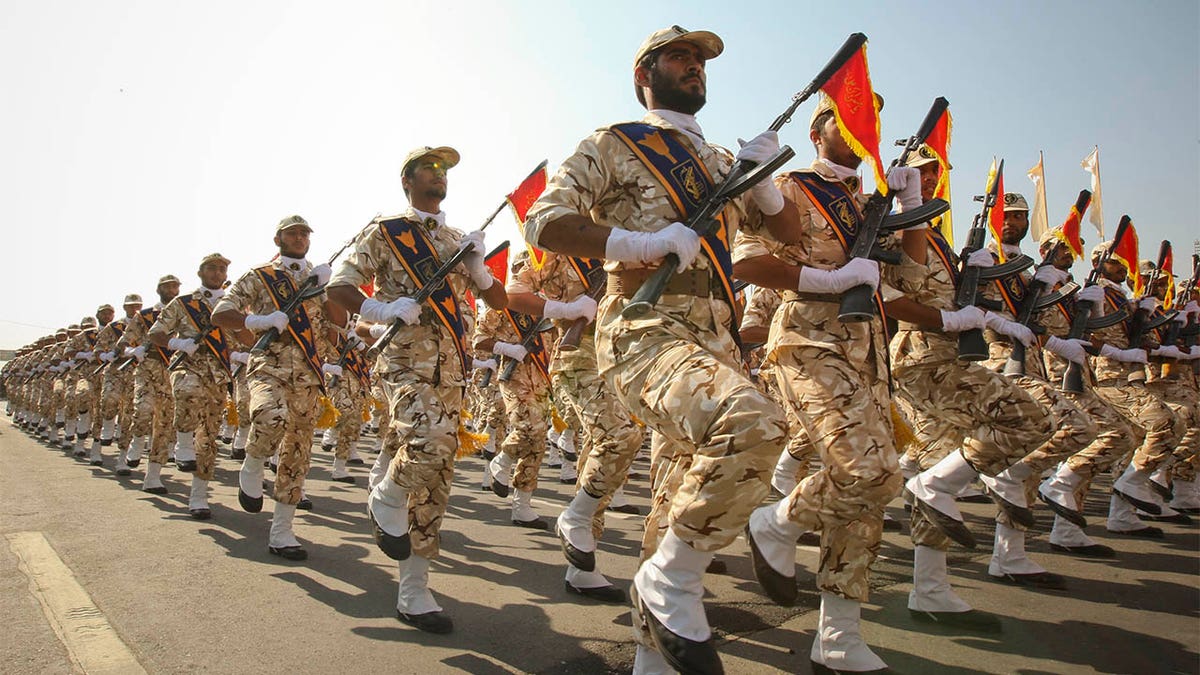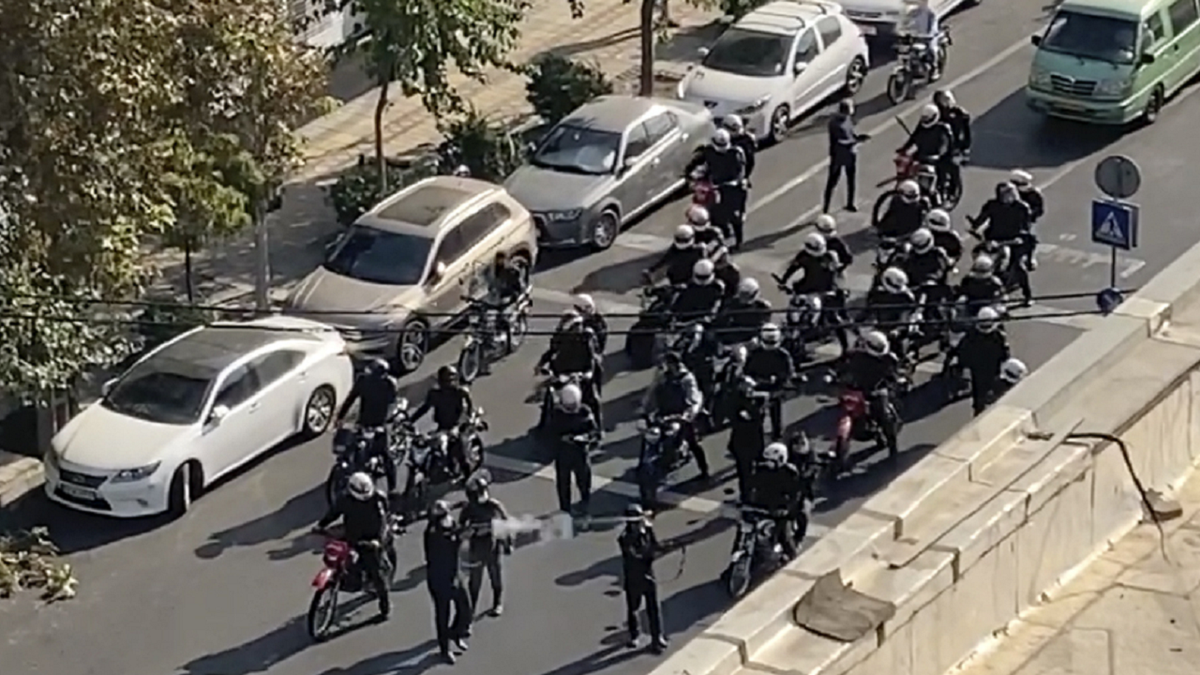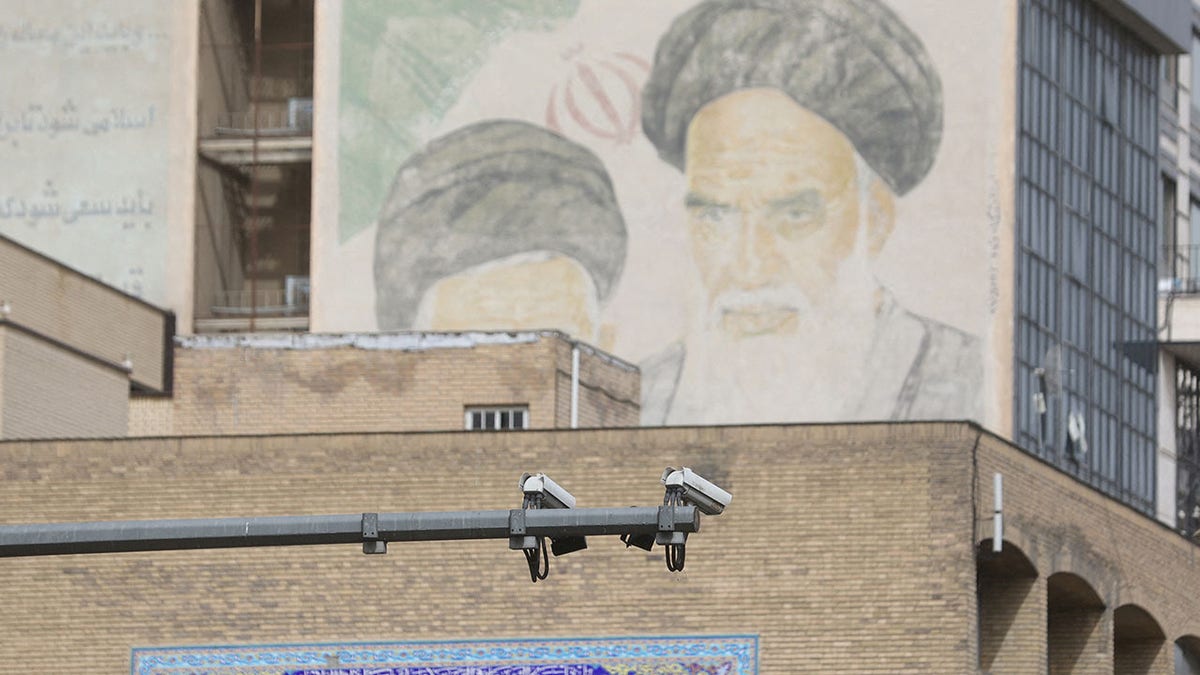Highlighting Iran's narco state operations as protests continue
Fox News' correspondent Amy Kellogg interviews Middle East writer and expert Emmanuel Razavi on Iran's IRGC illicit activities.
Emmanuel Razavi calls the Islamic Republic of Iran a "narco state" for the smuggling he says its Islamic Revolutionary Guard Corps (IRGC) carries out to finance terrorist activities abroad, and to enrich its members and friends in the elite. According to Razavi, a writer specializing in the Middle East who recently did an investigation for Paris Match magazine, the regime, which preaches adherence to strict Islamic principles, employs morality police and bans alcohol has no problem pushing drugs to international clients. Razavi claims that Iran’s contraband trade is diffuse and also includes significant traffic in gold.
"Some planes from an Iranian company called Mahan Air travel with weapons, gold and money inside," Razavi tells Fox News. "A lot of gold. Big quantities. It goes to different countries, and it is laundered and transformed into cash in Turkey, in Istanbul, on the black market."
Mahan Air is run by the IRGC and sanctioned by the United States. That money then, Razavi says, according to what he describes as a network of informers he’s tapped into on the ground, finds its way into the bank accounts of people not necessarily of the regime but friends and family sometimes even in Western-friendly countries. Perhaps it is a life insurance policy if things ultimately go badly.

Members of the Islamic Revolutionary Guard Corps march during a parade to commemorate the anniversary of the Iran-Iraq war. (Reuters.) (Reuters)
Razavi’s story corresponds to what Israeli defense sources have highlighted in recent months—that Venezuela sends gold to Iran as payment for the oil that Iran cannot sell elsewhere—and then that gold gets cashed in, in third countries. The cash goes toward financing Hezbollah and its nefarious activities, which are also to an extent the regime’s life insurance, keeping proxy wars hot and away from Iran’s actual territory.
While some sources say this movement of planes and gold is steady, Razavi’s research, which he claims comes from people who cannot be named due to the sensitive nature of their jobs and the repressive nature of Iran, indicates that Iranian smugglers have been moving more gold since the demonstrations started happening last fall following the death of 22-year-old Mahsa Amini. The young woman had been arrested for not wearing her hijab properly and died in police custody.
"There was a kind of progression of all these flights. We understood from some sources that the mullahs were worrying about what happened regarding the demonstrations. This is the reason probably why they decided to put money outside Iran, mixing money of the regime with their own money. It means the regime is worried about the future."
Apparently, a large group of top IRGC commanders tried to discuss these worries with Supreme Leader Ayatollah Khamenei some months back, but the details of that contentious meeting have only just recently leaked out, presumably due to the incendiary nature of the content.
IRAN SMUGGLED WEAPONS TO TERROR PROXY UNDER GUISE OF HUMANITARIAN AID: REPORT

Iranian police arrive to disperse a protest to mark 40 days since the death in custody of 22-year-old Mahsa Amini, whose tragedy sparked Iran's biggest antigovernment movement in over a decade, in Tehran, Iran, Wednesday, Oct. 26, 2022. (AP)
The commanders are said to have complained about having to crack down on protesters. This is increasingly bringing shame upon them, because in some cases their wives, children and neighbors are taking part in the demonstrations, explains former Iranian diplomat Mehrdad Khonsari. And in the now-famous meeting, the commanders openly criticized those around them who fill their pockets with effectively stolen goods. The point was made that some in the ranks of the IRGC are no longer able to make ends meet—as Iran’s inflation is, by some estimates, at 47%—while others’ family members sport watches worth the equivalent of five years’ salary of the average foot soldier.
"The exhibition of this kind of dialogue is totally unprecedented. It offers a window which people in Iran had not seen, and the government was naturally quite anxious to quell the publication or further talk about this subject because clearly it does not bode well for the regime," Khonsari added.
Hamed Mohammadi says the morale problem extends to Iran’s regular armed forces, of which he was once a member. Mohammadi, now living in exile and writing for London’s Kayhan newspaper, claims that the average officer’s salary is the equivalant of just four hundred dollars a month, and he says the cost of food in Iran is just as high as it is in London or Western Europe. When they are not moonlighting, driving taxis or guarding the big towers of the rich in north Tehran, some in the army are selling intelligence, according to Mohammadi.
"Disgruntled officers reveal the secret information of the regime. They sabotage," Mohammadi says. They reveal the path of movement of Qassem Soleimani (former head of the elite IRGC Quds Force assassinated in Iraq) or Mohsen Fakhrizadeh (alleged leader of Iran’s military nuclear research program—also assassinated). How does Israel know what is going on in the nuclear facilities?"
CLICK HERE TO DOWNLOAD THE FOX NEWS APP

CCTV cameras are seen in a street in Tehran, Iran, April 9, 2023. (Majid Asgaripour/WANA (West Asia News Agency) via REUTERS)
Mohammadi believes there is also competition between the Islamic Revolutionary Guard Corps and the regular army. He reports, from what his old contacts tell him, elevated levels of divorce and depression in the ranks of the military. Still, Mohammadi says, fear keeps the disgruntled from all-out rebellion.
Khonsari adds, "The government is in full control as we speak. They are not on the verge of collapse. But the fact is they are also incapable of solving any of the key issues that have to do with peoples’ lives. So their continuation at the helm of power has no long-term prospect, because they are incapable of doing anything unless they change their policies in a serious way."
And if the recent decision to come down even harder on women who refuse to wear the hijab—using cameras and facial recognition to track them—after months of violent protests and hundreds of deaths is an indication, the regime is entertaining no thoughts of any kind of change.











































